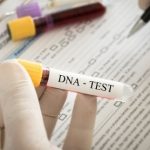The Times of India reports that paternity testing in India’s major cities is on the rise.
MUMBAI: It has been one of the original sins etched in the ancient testaments, but its practitioners are now feeling the heat, thanks to new age technology. Increasingly, Mumbai-based married couples who have had serious doubts about the child’s parentage are resorting to DNA finger-printing tests to establish the identity of the parent.
The state-run Forensic Science Lab at Kalina has so far received 40 blood samples from couples who are at war over the parentage of their infants. “We have been receiving these samples from police stations where criminal cases of harassment have been filed and also from family courts where there are ongoing legal disputes about the parentage,” FSL director Rukmini Krishnamurthy told TOI.
Mazagaon resident Praveen Salian is one of the many parents who went for the DNA test recently as he doubted that his two-year-old baby looked like anyone in his family. A radio officer on a merchant vessel, he had in fact separated from his wife a year ago, and filed a divorce plea in the family court.
When the case came up for hearing, the court directed the police to verify this contention by testing the DNA blood samples of the infant and the father. Salian’s plea was found to be true as the infant’s samples did not match with his own and the divorce was granted.
Legal experts fighting paternity suits say there has been an increase in the number of such cases — a by-product of the increasing marital disharmony amongst urban nuclear families. “The DNA test is recognised under the Indian Evidence Act, although it is not conclusive proof and courts still look at supporting evidence if the case is related to harassment and sexual abuse,” counsel Uday Warunjakar said.
Experts say there are two types of paternity suits filed where the DNA fingerprinting test are used. In the first case, a dispute arises over a property and there are many legal heirs claiming their right. “The legal heirs can be found out by testing the blood samples,” Warunjakar said. In the second type of case, which involves couples who doubt their spouse’s fidelity, the DNA tests are done after a harassment case or a divorce plea is filed by one of the partners.
This disturbing urban social trend has gained huge popularity in the west. According to the American association of blood banks, 30% of 3.54 lakh men who took paternity tests in 2003 were not biological fathers of the tested child.
But psychiatrists have a word of caution. “One out of every two case arises due to suspicion and an inherent martial discord between the family. If couples have doubts, then it is good that they conduct a DNA test. But the problems usually does not stop here,” said Harish Shetty, a Mumbai-based psychiatrist.
He says that couples should undergo proper screening and counselling before they undertake the DNA test. “There are other reasons for marital disharmony and they just find this as an excuse for separation. Even if the DNA tests reveal that the child is their own, things may not be the same again if ‘other’ reasons for disharmony have not been resolved,” Shetty said.




